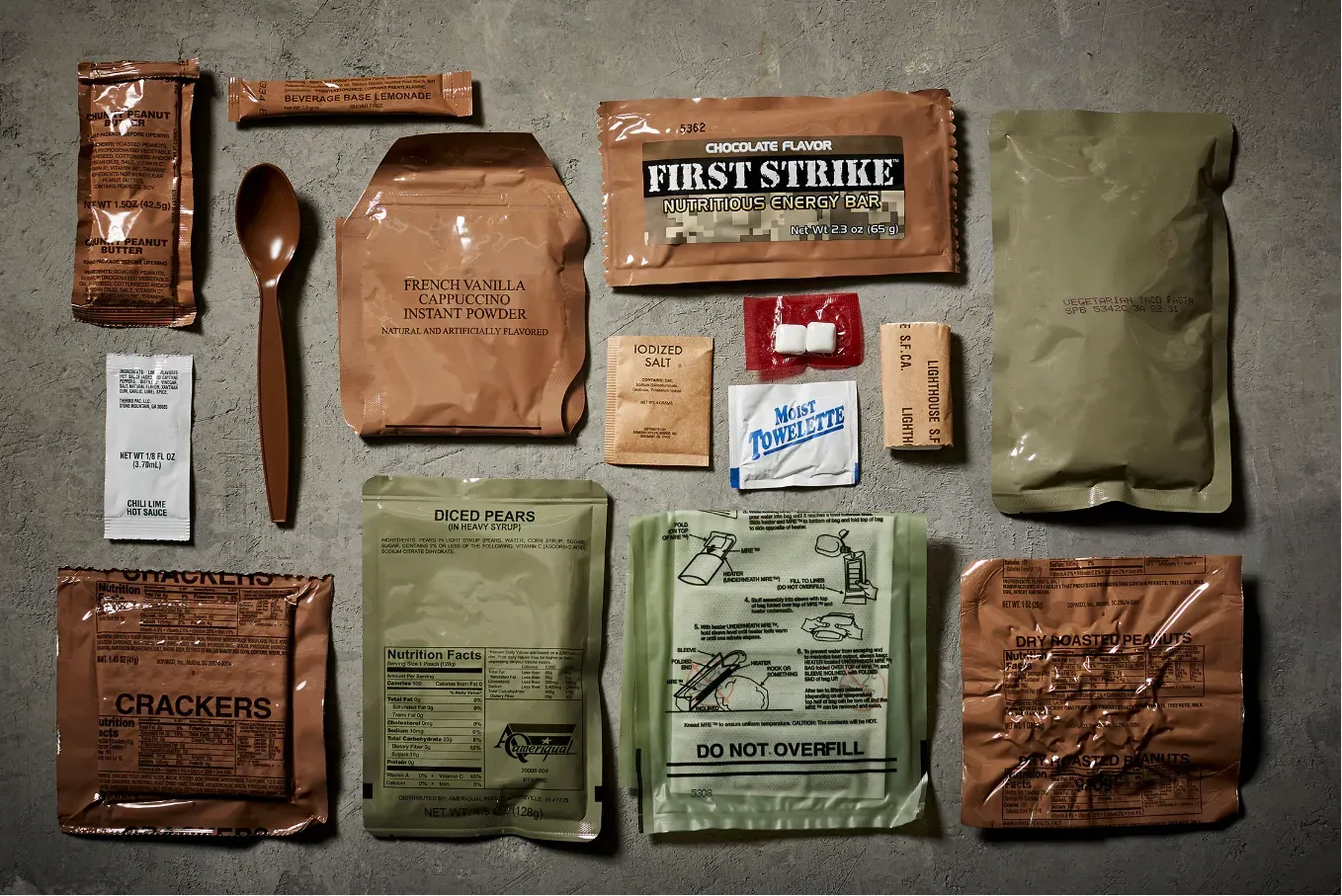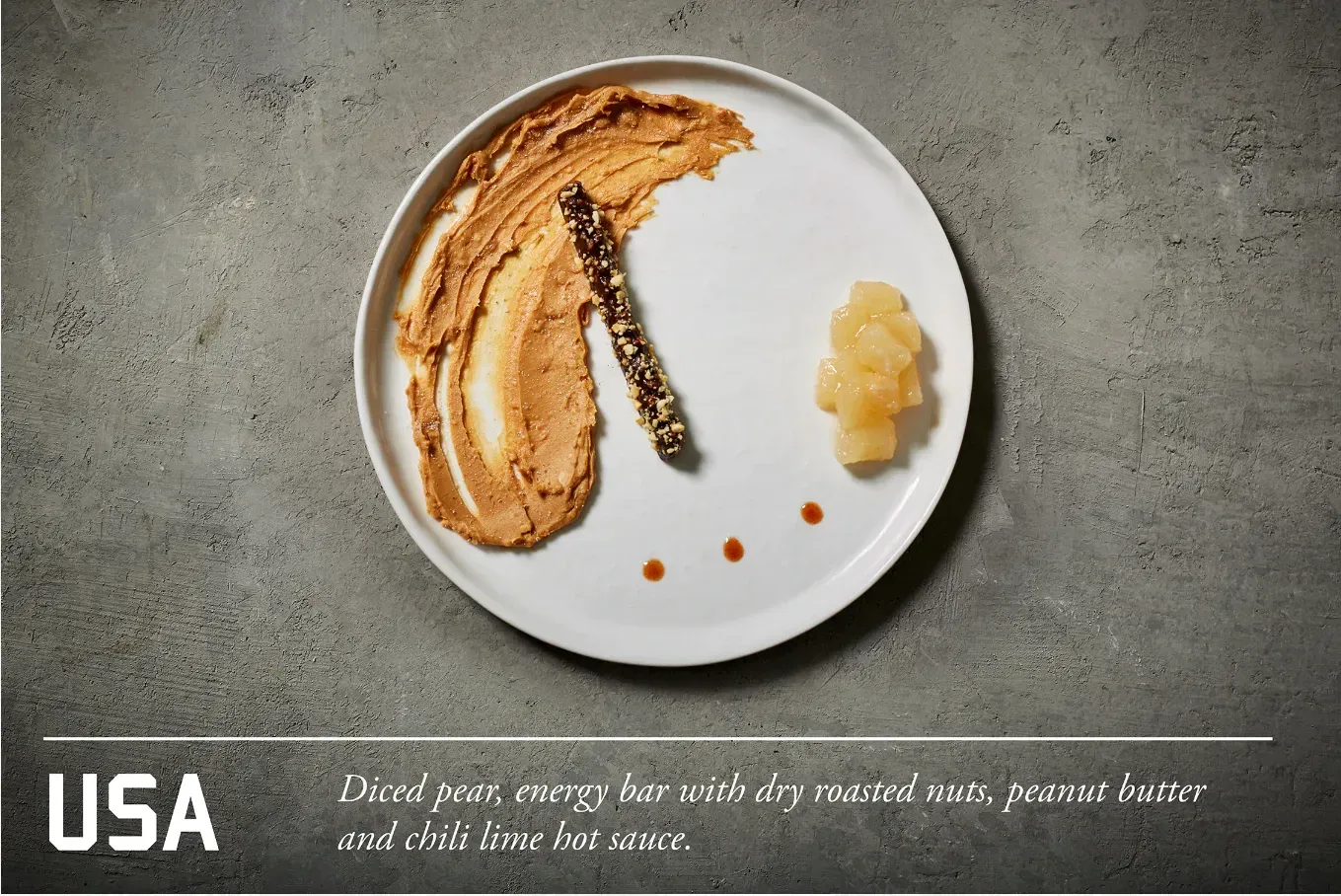Going Global: Henry Hargreaves on creative control & collaboration
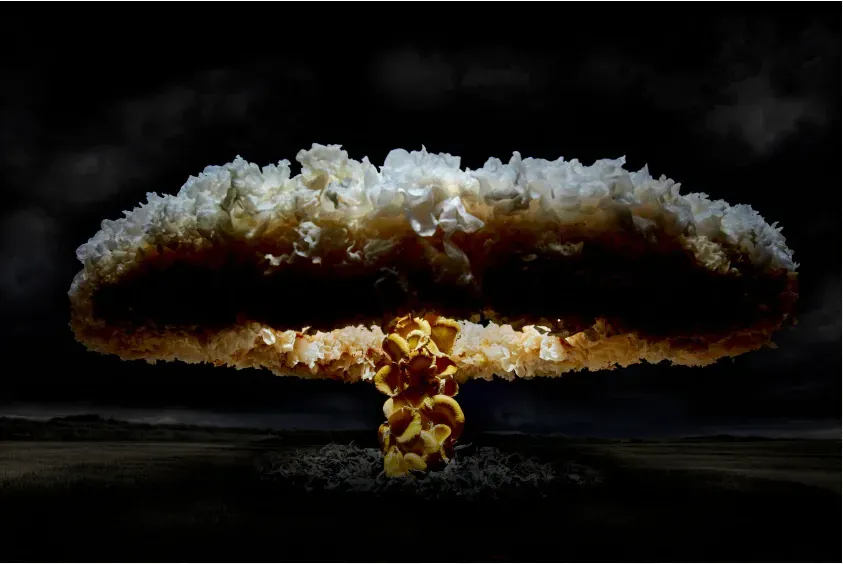
Between shoots in his Brooklyn apartment and his nearby studio, Hargreaves found time to squeeze in a quick Q&A with TBI editor James Littlewood.
When was the last time you lived and worked in New Zealand?
I left at the end of 2000 when I finished Canterbury University. That was the last time I lived in NZ. But I visit once or twice a year. I’ve never actually worked in NZ apart from a few photo shoots and personal projects and things like that. The last project I did there was for my website Staff Meals of the World, and I profiled a few wineries, restaurants and staff meals, and the rituals around that.
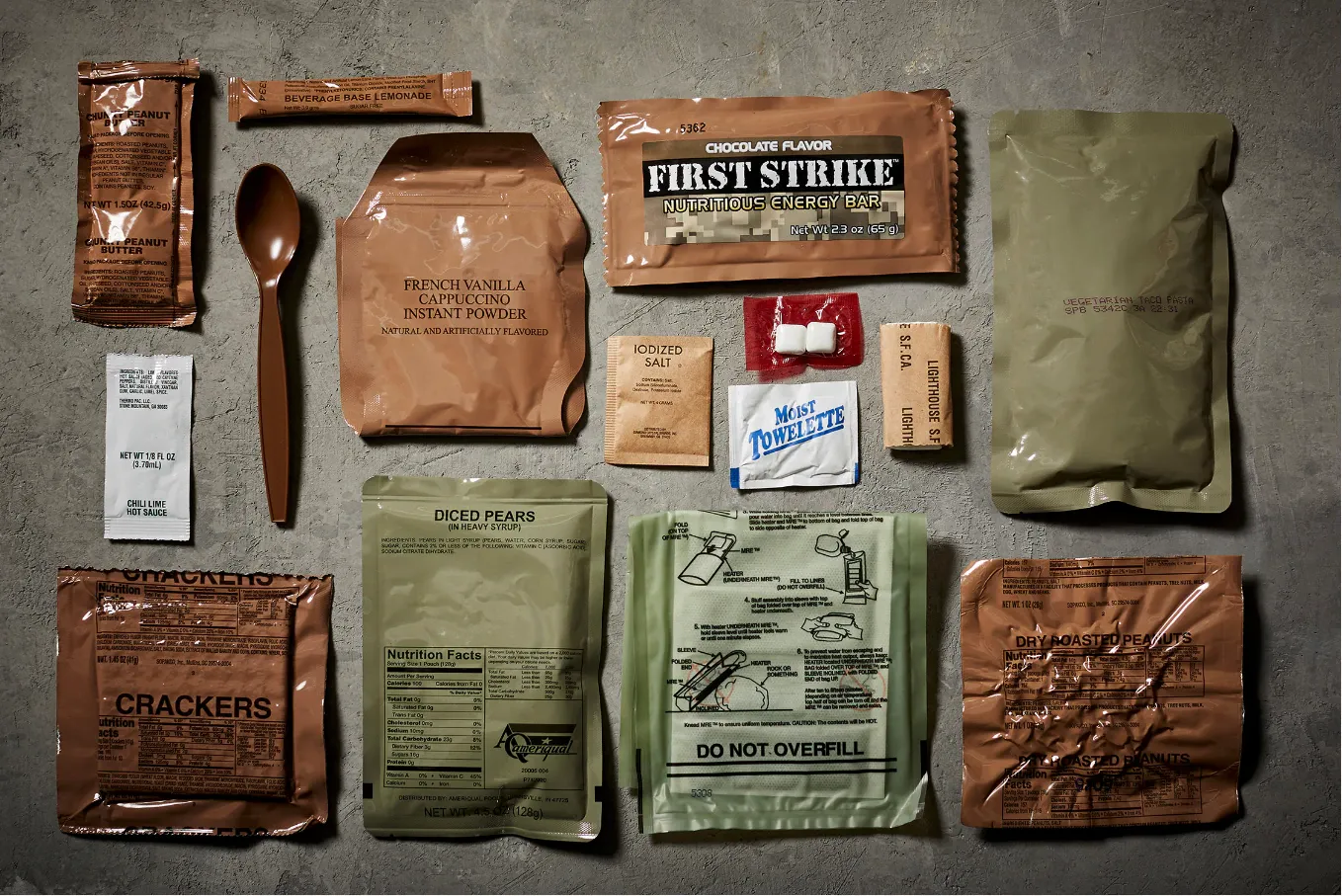
"USA" from the series "From MRE to Michelin", by Henry Hargreaves.
How did the modelling career come about?
I was backpacking through Thailand and someone approached me and asked if I wanted to be in a Thai magazine. They were doing a fashion shoot. He was a total stranger, a stylist who got western models by approaching tourists. I was a bit shocked at the time, that they wanted me to model, since I’d never had much luck with the ladies. Anyway I did it, and six months later I was in all the ads for Prada.
That’s fairly unusual. So what prompted you to get behind the camera?
When I was modelling I just kind of envied photographers. They were the ones who had control over their career and were doing creative things. And I wanted to be calling the shots and not just kind of the tool, the puppet that everyone's manipulating. That’s what inspired me to get behind the camera.
Also, when I grew up in New Zealand, I didn’t really know you could make a career as a photographer. To me a photographer was someone who took your school portrait, someone who was at a wedding with a camera. I didn’t realise it was someone with a whole other world of photography. I’d never seen or known anyone who’d done that. So I didn’t realise that until I modelled.
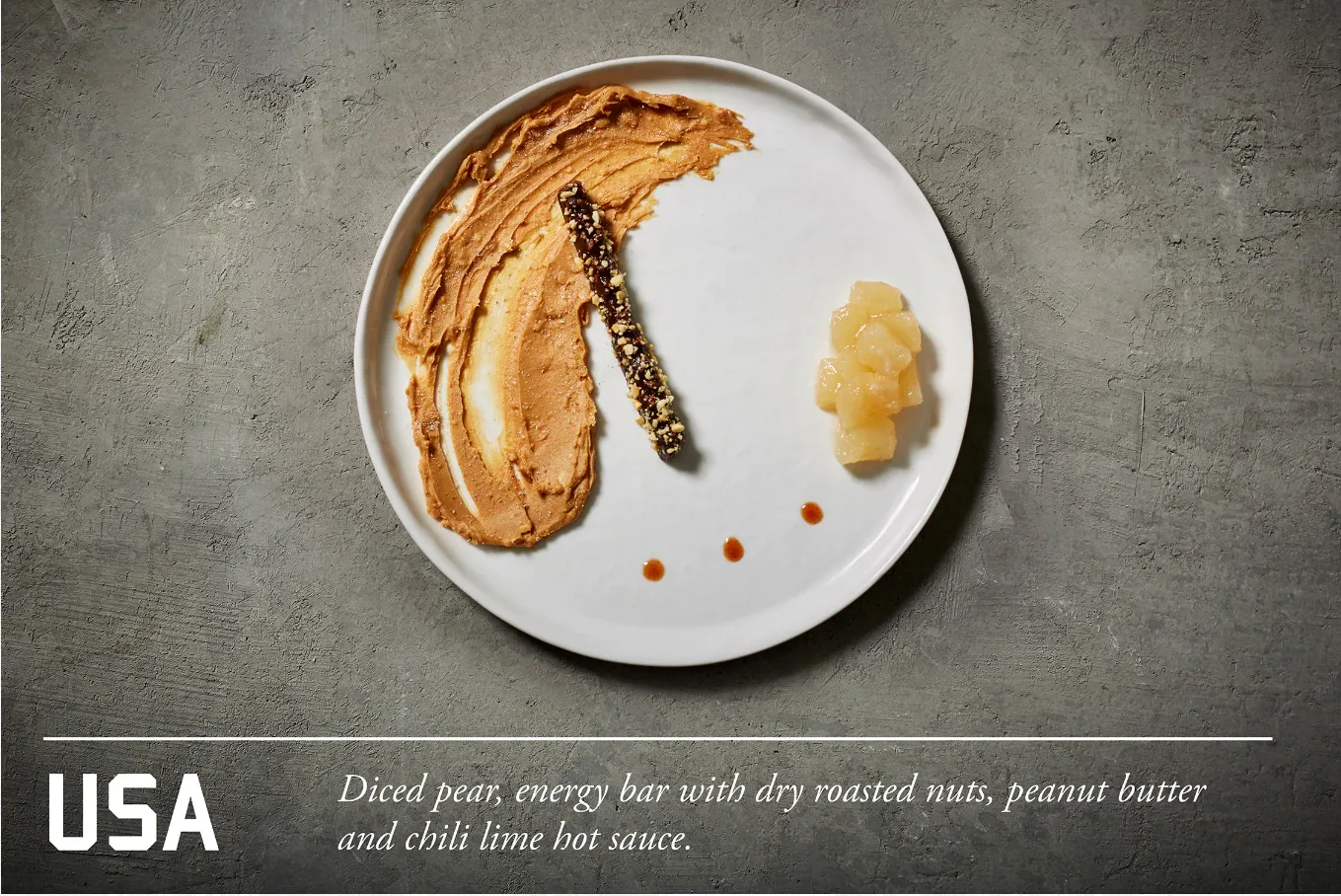
"USA" from the series "From MRE to Michelin", by Henry Hargreaves.
Given that much of your work deals with food, not people, what did your work as a model contribute to your work as a photographer?
I think that I got to see how photographers dealt with clients, and the talent, and the pacing of a shoot, and organisation and things like that.
Your work seems to provide ever new ways to look at food, and ways of using food to create new views of the world. What drew you to food in the first place?
I just always really liked this idea of hospitality and serving people. My job had always been at university and high school, working at the Lone Star in Christchurch and catering weddings, and then bartending as a travelling occupation. And I just kind of loved this idea of how in different places you have these different rituals and cultures around food, and I started to realise that there was so much, you know, that food told so much about people, and place, and everything. I just sort of wanted to jump in on that. Most people are shooting food just to make it look appetising, and for you to eat it. But I wanted to tell the stories that surrounds the dish.
Do you see yourself as a photographer who works with food? Or a foodie who works with cameras?
Very much the latter. I mean, I think the camera is what documents the little arts process. Yeah, so the arts and crafts live on through the photo.
What advice would you give someone who - like you - has more than one artform inside them?
I think that probably the universal advice is that anyone’s got thousands of ideas, but an idea is not worth anything until you do something with it. No matter what you do, just make sure you finish something and are able to put it out there. That would be my advice, to just run with anything.
What advice would you give someone hankering for a gig in New York?
Just get over here and see for yourself and make it happen. It’s an amazingly accommodating and open minded place.
Were you surprised to find New York as accommodating as it was?
I think I was just excited to see the fabled place. I was pleasantly surprised that people were so helpful. It was also the week of 9/11, so things weren’t exactly normal.
How important is collaboration? What prompted you to seek out collaborators?
I do about half my work as collaborations. I think it’s really helpful to work with someone to give you distance from the work and not see it as personal. Also you sometimes need someone with different strengths to get the best results.
How does living and working in New York affect your relationship with Aotearoa?
It obviously takes me away geographically a massive amount. But in my heart New Zealand is home. It always will be, no matter how long I spend here or wherever I have my family or anything like that, New Zealand’s where I grew up and where I became who I am. So, I can’t change that.
Henry Hargreaves is producing a new suite of work for the festival Wellington on a Plate: a photographic exploration of "uncelebratable" birthday cakes, based on names submitted to - and rejected by - the New Zealand Registrar of Births, Deaths and Marraiges. Plus, keep an eye out for his 24 hour takeover of our Instagram account, coming up soon.
